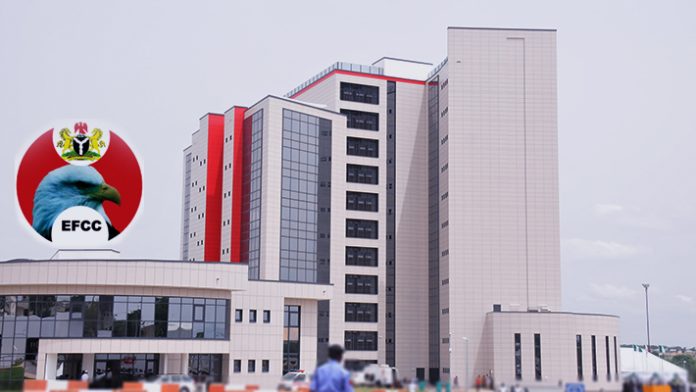
Court Dismisses Anambra’s Suit Challenging EFCC’s Power To Investigate Finances
A Federal High Court sitting in Awka, Anambra State, has dismissed a suit filed by the state government challenging the power of the Economic and Financial Crimes Commission (EFCC) to investigate its finances.
The state government asked the court to determine whether under the Federal System of Government, with the constitutional doctrine of Separation of Powers, “the appropriation, disbursement and or administration of funds belonging to a state government is subject to investigation by the EFCC being an agency of the Federal Government.”
The state government in the suit also asked the court to determine whether the power of the EFCC, as an agency of the federal government, is not restricted to the matters set out in the Exclusive Legislative List contained in Part I of the Second Schedule to the 1999 constitution of the Federal Republic of Nigeria (as amended).
“Whether the appropriation, disbursement and or administration of funds belonging to the Government of a State are not matters within the Concurrent Legislative List contained in Part II of the Second Schedule to the 1999 Constitution of the Federal Republic of Nigeria (as amended),” the suit reads.
“Whether from a community reading of Sections 80, 120, 121, 125, 126, 128 and 129 of the 1999 Constitution of the Federal Republic of Nigeria (as amended) the power and function to conduct an investigation into the appropriation, disbursement and or administration of the public funds/accounts of the Government of a State is not reserved for the House of Assembly of the State.”
The suit was in response to a series of letters of invitation by EFCC to the Secretary to the State Government (SSG) and the State Attorney-General seeking the release of officials of the state government to offer explanations in an alleged case of fraudulent misappropriation of funds.
Justice Nnamdi Dimgba, delivering his judgment, said EFCC has constitutional powers to investigate any act of economic and financial crime in any part of the country.
The court also stressed that neither the authorities of a State’s House of Assembly nor Auditor- General of a State preclude the commission from performing its mandate as contained in the constitution.
“In my view, the questions posed is at large… Is the EFCC a federal agency exclusively for all purposes, or is it both a federal agency and a state agency for some other purposes? It all depends on the context to which the question has been posed,” Justice Dimgba said.
“In the context of the case at hand, which is whether it is legitimate for the EFCC to commence investigative activities against the named officials of Anambra State Government as contained in Exhibit 1 concerning the manner of the management and utilization of the public funds of Anambra State, the question posed must be answered against the plaintiffs and the corresponding reliefs sought denied.”




